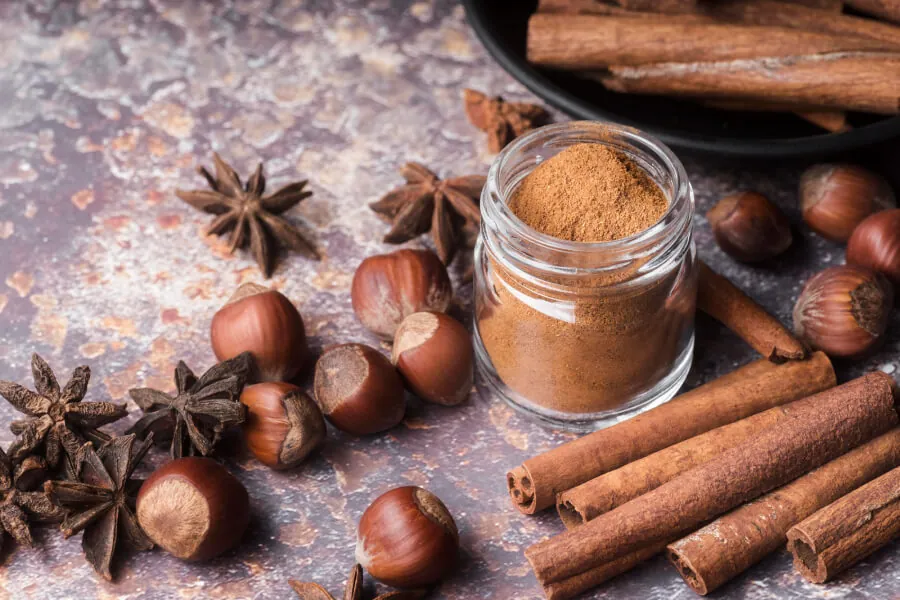Toothaches can strike at the most inconvenient times, often when a visit to the dentist isn’t immediately possible.
While professional dental care is essential for long-term oral health, home remedies for toothache can offer you temporary relief.
This guide explores the causes of toothaches, symptoms, and a range of effective home remedies for toothache, as well as preventive measures and signs that you should see a dentist.
Effective Home Remedies for Toothache Relief
Here are some tried-and-true home remedies for toothache using ingredients you likely have in your kitchen:
Garlic and Salt Paste
Garlic has potent antibacterial properties that can help combat the bacteria causing tooth pain.
Ingredients:
- 1 clove of garlic
- A pinch of salt
Instructions:
- Crush the garlic clove into a paste.
- Mix with a pinch of salt.
- Apply the paste directly to the affected tooth.
- Let it sit for a few minutes before rinsing with warm water.
Clove Oil and Cotton Ball Application
Clove oil contains eugenol, a natural anesthetic and antibacterial agent.
Ingredients:
- Clove oil
- Cotton ball
Instructions:
- Soak a cotton ball in clove oil.
- Apply the cotton ball to the affected tooth.
- Leave it in place for 15-20 minutes.
- Repeat as necessary.
Peppermint Tea Rinse
Peppermint has numbing properties that can help soothe a toothache.
Ingredients:
- 1 peppermint tea bag
- 1 cup of boiling water
Instructions:
- Steep the peppermint tea bag in boiling water for 20 minutes.
- Allow the tea to cool.
- Swish the tea in your mouth for 30 seconds before spitting it out.
- Repeat several times daily.
Turmeric Powder and Honey Paste
Turmeric has anti-inflammatory and antibacterial properties, while honey has soothing effects.
Ingredients:
- 1 teaspoon turmeric powder
- 1 teaspoon honey
Instructions:
- Mix the turmeric powder and honey to form a paste.
- Apply the paste to the affected tooth.
- Let it sit for 15 minutes before rinsing with warm water.
- Use this remedy 2-3 times a day.
Ice Pack Therapy
Cold compresses can help reduce swelling and numb the pain.
Ingredients:
- Ice pack or a bag of frozen vegetables
Instructions:
- Wrap the ice pack in a thin cloth.
- Apply it to the outside of your cheek near the painful tooth.
- Hold it in place for 15 minutes.
- Repeat every few hours as needed.
Aloe Vera Gel Application
Aloe vera has anti-inflammatory properties that can help reduce pain and swelling.
Ingredients:
- Aloe vera gel (fresh or store-bought)
Instructions:
- Apply a small amount of aloe vera gel to the affected tooth.
- Gently massage the gel into the gums.
- Let it sit for 10-15 minutes before rinsing with warm water.
- Use this remedy 2-3 times daily.
Cinnamon Powder and Olive Oil Paste
Cinnamon has antimicrobial properties, and olive oil can soothe the gums.
Ingredients:
- 1 teaspoon cinnamon powder
- A few drops of olive oil
Instructions:
- Mix the cinnamon powder with olive oil to form a paste.
- Apply the paste to the affected tooth.
- Let it sit for 15 minutes before rinsing with warm water.
- Use this remedy twice daily.
Why Home Remedies for toothache?
Accessibility
Natural remedies involve ingredients commonly found in the kitchen, making them readily accessible.
Cost-Effective
Home remedies are generally cheaper than over-the-counter medications or dental treatments.
Fewer Side Effects
Natural ingredients often have fewer side effects compared to synthetic drugs.
Immediate Relief
Many home remedies for toothache can provide quick, temporary relief from tooth pain.
While professional dental care is essential for long-term oral health, home remedies for toothache can offer temporary relief.
Fortunately, your kitchen is stocked with natural ingredients that can help alleviate tooth pain.
This guide explores the causes of toothaches, symptoms, and a range of effective home remedies for toothache, as well as preventive measures and signs that you should see a dentist.
What Makes Your Tooth Scream?
A toothache happens when the nerve in the root of a tooth or surrounding a tooth is irritated.
Tooth infections, decay, injury, or loss of a tooth (including tooth extractions) are the most common causes of dental pain.
Sometimes, pain originating from other areas (called referred pain), such as from the ear, sinus, or jaw, can radiate to the mouth and cause toothache.
The common causes include:
Tooth Decay
Tooth decay is the most common reason for a toothache. It happens when the bacteria in your mouth produce acids that erode the tooth enamel, leading to cavities.
Gum Disease
Gingivitis and periodontitis, types of gum disease, can cause toothache!, especially when the gums become swollen and infected.
Tooth Abscess
An abscess is a pocket of pus caused by a bacterial infection. It can occur at different regions of the tooth, leading to severe pain.
Tooth Fracture
Cracks or breaks in a tooth can cause pain, especially if they reach the sensitive pulp inside the tooth.
Loose or Broken Fillings
Fillings that become loose or break can expose the sensitive parts of the tooth, leading to pain.
Bruxism (Teeth Grinding)
Grinding or clenching your teeth can wear down the enamel and cause tooth pain.
Symptoms of a Toothache
- Sharp, throbbing, or constant pain in the tooth
- Pain when pressure is applied to the tooth
- Swelling around the tooth
- Fever or headache
- Foul-tasting drainage from an infected tooth
- Sensitivity to hot or cold food and drinks
Preventive Measures for Toothache
Maintaining good oral hygiene is key to preventing toothaches. Here are some tips to keep your teeth healthy:
Regular Brushing and Flossing
Brush your teeth at least twice a day and floss daily to remove food particles and plaque.
Use Mouthwash
Rinse with an antiseptic mouthwash to kill bacteria and freshen your breath.
Avoid Sugary Foods and Drinks
Limit your intake of sugary foods and beverages, which can contribute to tooth decay.
Regular Dental Check-Ups
Visit your dentist for regular check-ups and cleanings to catch any issues early.
Use Fluoride Toothpaste
Fluoride helps strengthen tooth enamel and prevent cavities.
Stay Hydrated
Drinking water helps wash away food particles and bacteria from your mouth.
When to Consult a Dentist
- Persistent Pain: If the pain lasts more than a day or two.
- Severe Pain: If the pain is unbearable.
- Swelling: If you experience significant swelling in your gums or face.
- Fever: If you develop a fever.
- Difficulty Breathing or Swallowing: This could indicate a serious infection.
- Pus: If there is discharge from the tooth or gums.
Conclusion
Toothaches can be debilitating, but many natural home remedies for toothache available in your kitchen can provide temporary relief.
Ingredients like garlic, clove oil, peppermint, turmeric, aloe vera, and cinnamon have powerful properties that can help reduce pain and inflammation.
However, it’s crucial to remember that these home remedies for toothache are not substitutes for professional dental care.
Regular oral hygiene and preventive measures are key to avoiding toothaches, and seeing a dentist promptly is essential for addressing any serious dental issues.
FAQs
How to Prevent Toothache?
To prevent toothaches, maintain good oral hygiene by brushing and flossing regularly, using mouthwash, avoiding sugary foods, staying hydrated, and visiting your dentist for regular check-ups.
What Is a Homemade Recipe for Tooth Sensitivity?
For tooth sensitivity, mix 1 teaspoon of baking soda with a few drops of water to form a paste. Apply it to your teeth and let it sit for a couple of minutes before rinsing with water. Baking soda can help neutralize acids and reduce sensitivity.
Can These Home Remedies for toothache Replace Professional Dental Care?
No, these home remedies for toothache are intended for temporary relief. Professional dental care is necessary for diagnosing and treating the underlying causes of tooth pain.
Are There Any Risks with Using Home Remedies for toothache?
While most home remedies for toothache are safe, some people may be allergic to certain ingredients. Always perform a patch test if you’re unsure and discontinue use if irritation occurs.
How Often Can I Use Home Remedies for toothache?
Most home remedies for toothache can be used 2-3 times a day until you can see a dentist. However, ice pack therapy can be repeated every few hours as needed.








